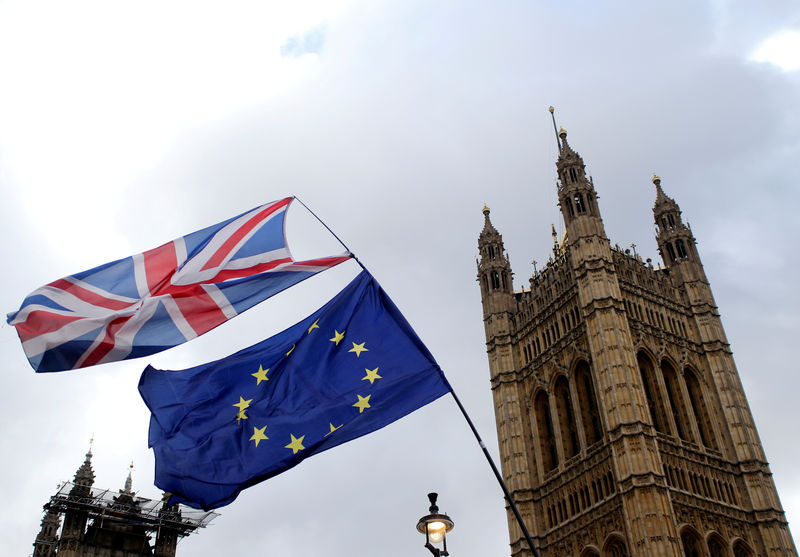By Gabriela Baczynska
BRUSSELS (Reuters) - The European Union has warned London not to overdo its campaign to independently negotiate trade deals around the world while still being a member of the bloc, according to a letter to the British ambassador to Brussels seen by Reuters.
The promise of a "global Britain" assertively pursuing its interests in bilateral trade agreements around the world was central to the Brexit campaign. But, three years after Britons voted to leave, the fate of Brexit hangs in balance.
As long as it remains an EU member, Britain is at liberty only to discuss - not enact - future trade deals, and must keep the bloc informed.
But a letter from the bloc's executive European Commission - which negotiates international trade deals for all member states - to the British ambassador to the bloc, Tim Barrow, dated Sept. 5, said: "In several cases the necessary information on the international negotiations, which the United Kingdom intended to undertake... while still a Member State, and the outcome of these negotiations has not been provided in due time."
It stressed that the situation "does not allow the (European) Union to either take a position on the United Kingdom's intention to start negotiations or, where necessary, to authorize the latter".
"I reiterate the request to your authorities to provide in a timely manner... all necessary information and documentation concerning the negotiations in areas of (European) Union competence that the United Kingdom is currently engaged into or intends to engage into."
Asked for comment, the Commission said it was a "standard letter reminding the UK of its obligation to inform us properly of the negotiations it is engaged in while still an EU Member State".
A British government spokesperson said: "We have kept the European Commission informed of our work to transition international agreements throughout this process and we will continue to act transparently as we prepare to leave the European Union on 31st October."
Prime Minister Boris Johnson says he would take Britain out of the EU in 28 days.
With trade deals being complicated matters that take years to conclude, London is in talks with multiple parties to agree the temporary extension of the trading terms it currently enjoys as an EU member to prevent disruption should it leave the bloc with no divorce agreement.
According to a British government website, London has sealed 14 such rollover agreements so far - from Chile to Israel to Switzerland and, most recently, South Korea.
It lists some two dozen more as pending, with United States, Australia and New Zealand being key priorities.
An EU diplomat said the bloc was upset about a recent British fishing agreement with Norway and saw a potential conflict of interest in Britain's talks on sharing electronic evidence with the United States being conducted while the bloc was negotiating its own accord with Washington on exchanging such information in criminal cases.
"It is not entirely in line with the principle of sincere cooperation," the person said.
Another diplomat added: "We all know they can't do separate trade deals while still in the EU. And we all know they are kind of doing it anyway. So it's a reminder that we are watching."

If and when Brexit takes place, Britain and the EU will also need to negotiate their new relationship, which is likely to prove even more daunting and more tortuous than the withdrawal arrangements.